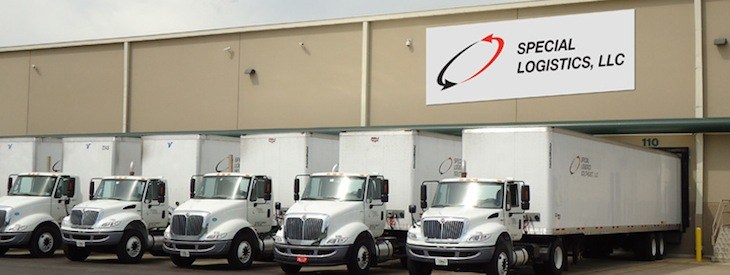Final mile delivery business rises to 4% of J.B. Hunt total revenue
by March 6, 2018 2:59 pm 1,236 views

At a recent Barclays equity conference, John Roberts, president and CEO of J.B. Hunt Transport Services, and David Mee, the company’s executive vice president and chief financial officer, noted that its final mile business represents 4% of total revenue.
In the fourth quarter of 2017, the carrier’s revenue rose 15.6% to $1.99 billion, and 4% of revenue would be $79.6 million. The carrier’s final mile business is part of the dedicated contract services segment. In the fourth-quarter, the segment’s revenue rose 19.7% to $476.660 million, or 24% of the company’s revenue. The segment’s operating income fell 37.6% to $34.918 million, or 24% of the company’s operating income.
In July 2017, the carrier acquired Special Logistics Dedicated, and as a result of the purchase, it has about $300 million of revenue in its final mile business, according to analyst Brandon Oglenski of Barclays.
“The business is primarily non-asset based and delivers larger items such as home appliances, similar to XPO’s last mile business which represents just over 6% of XPO’s total gross revenue.”
Roberts and Mee expected pricing to improve this year, but the positive pricing won’t impact margins until the second half of 2018 as the price increases are phased in. Also, the tight capacity in the industry is more a result of drivers, not equipment. However, ELDs (electronic logging devices) are leading third-party drayage providers to increase rates in some lanes. Drayage refers to the truck transportation of freight to and from railroads.
J.B. Hunt also expects intermodal volume to rise but rail service remains a challenge. Roberts and Mee look to a “multi-faceted” solution that would not only include its rail partners’ performance but also customer container management, Oglenski said.
“We like J.B. Hunt’s multi-faceted approach to growth longer-term and expect a strong year of pricing across its portfolio. Management’s track record of returns-focused investment support the longer-term outlook as well. However, we balance this with high relative valuation and potential near-term margin pressure from cost inflation and growth investments.”
Conventional wisdom suggests that technology – drones and autonomous vehicles, for example – will make final mile delivery more cost effective and convenient. A September 2016 report from McKinsey & Company said the market will be lucrative for companies who are now preparing for it.
“However, the market is not just large, it is also highly dynamic, with growth rates in 2015 ranging between 7 and 10 percent in mature markets, such as Germany or the US, and almost 300 percent in developing markets such as India,” noted the report.
The report also said companies and consumers should “get ready for a world where autonomous vehicles deliver 80 percent of parcels.” The report suggested that such a world could arrive by 2026.
Shares of J.B. Hunt (NASDAQ: JBHT) closed at $117.41 on Monday (March 5). In the past 52 weeks, the stock has traded between $126.49 and $83.35.
